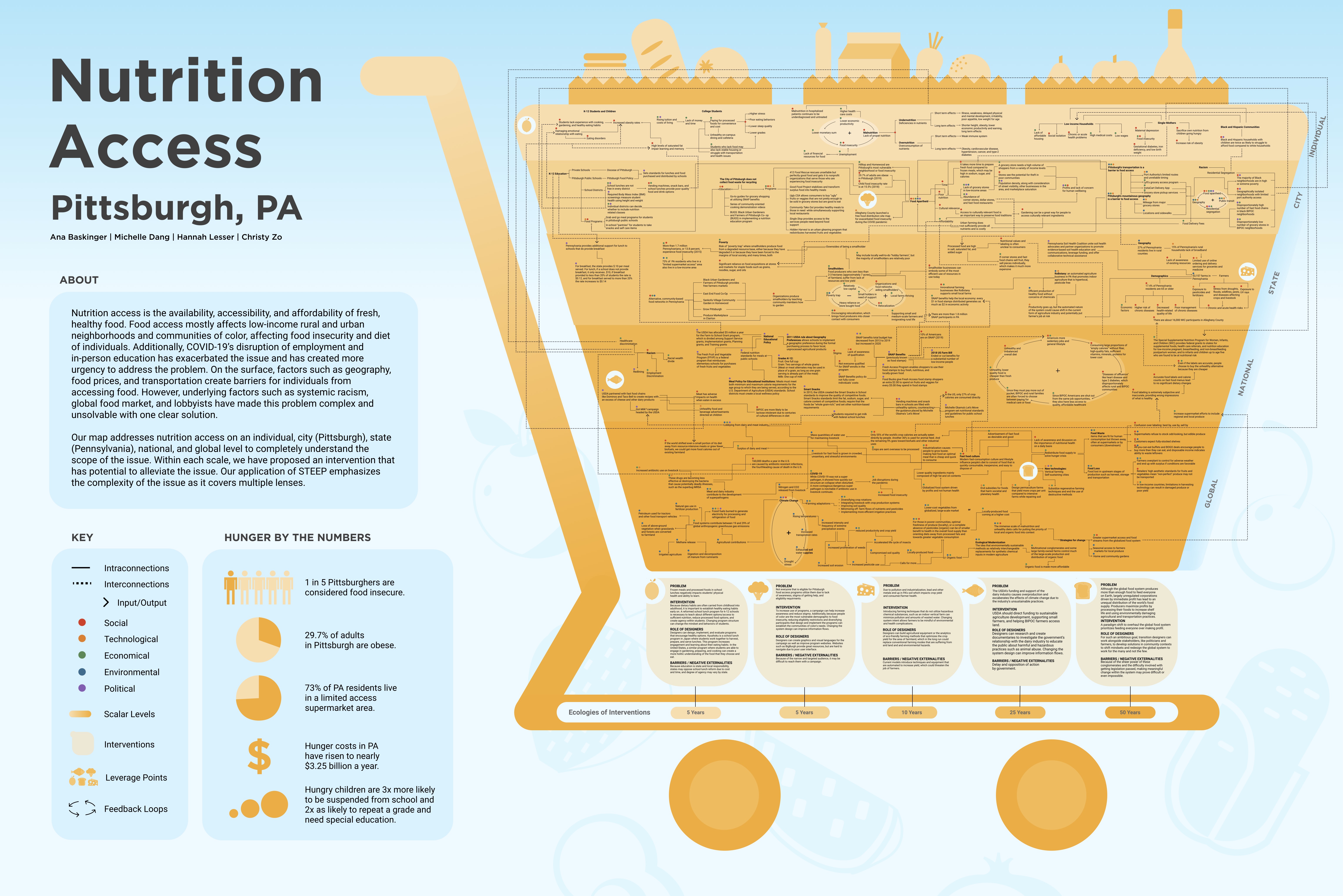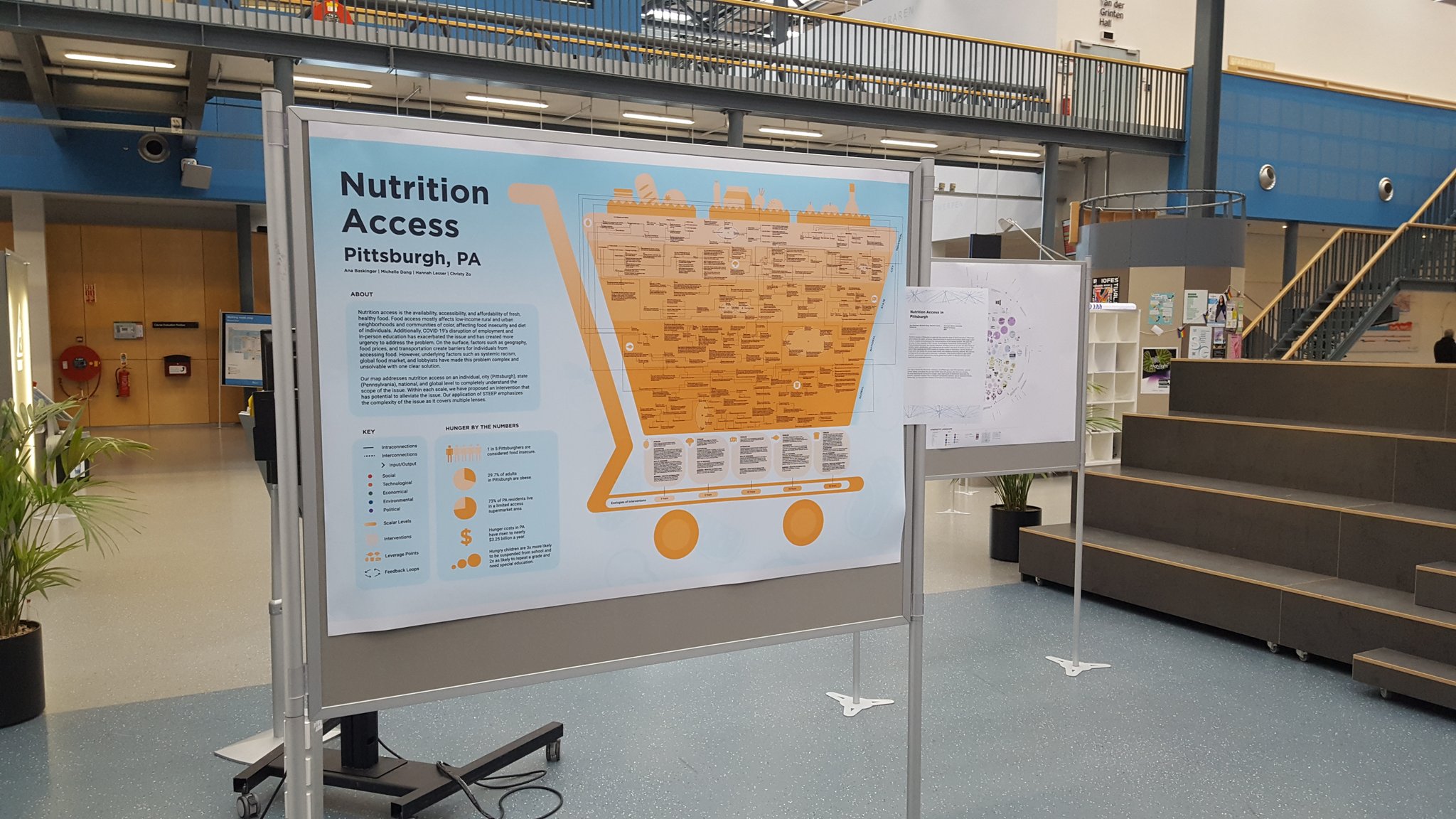
Mapping Wicked Problems
Timeline: 8 weeks
Skills
︎︎︎ STEEP
︎︎︎ Large-scale mapping
︎︎︎ Systems thinking
Nutrition Access in Pittsburgh is a gigamap that nests the issue of food insecurity in Pittsburgh, which affects the health, economy, and environment of various communities within larger scalar levels to visualize and understand the interconnectivity of this wicked problem. We used the process of mess mapping, STEEP (Social, Technological, Economical, Environmental, and Political analytical lenses), and Donella Meadows’ leverage points to uncover the deep levels of poverty, racism, globalization, and lobbying that are rooted in the issue of nutrition access. The use of mess mapping and STEEP helped us organize nodes of information, identify feedback loops within and across the various scalar levels, and categorize recurring patterns. We propose leverage points on every scale to intervene in education, food access programs, agricultural practices, government interventions, and the global food system to alleviate the issue and hypothesize on preferable futures.
Our map is divided into five levels: individual, city (Pittsburgh), state (Pennsylvania), national (United States), and global. As you read further down the grocery cart, the more complex the issue becomes as it is bound to a larger scale. Each point of intervention describes the problem, proposes a solution from a designer’s perspective, barriers, and an expected timeline. Additionally, we have provided statistical information to contextualize the issue.
Our map was also featured in the RSD10 symposium at TU Delft.
